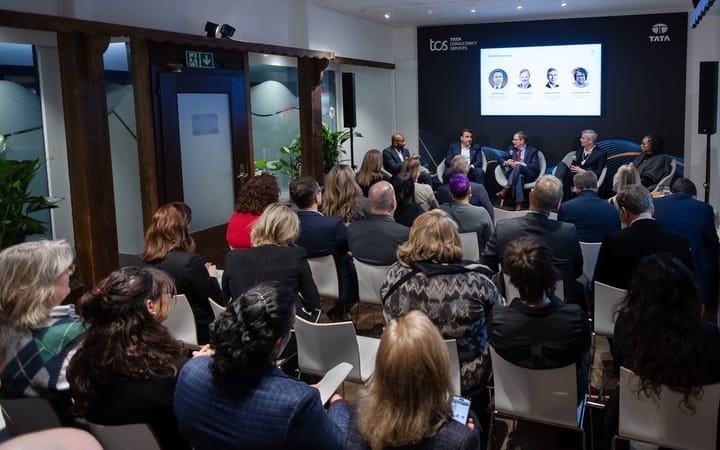PRAXIS A-P: How communicators become business leaders
At the inaugural PRAXIS Asia-Pacific in Singapore, former Rolls-Royce president Bicky Bhangu urged communicators to move from reactive counsel to proactive strategy, embedding communications into business decisions from the outset.

Dr Bicky Bhangu OBE has served in senior global roles at blue-chip companies such as Rolls-Royce, sat on dozens of boards and, in keeping with the times, advises startups too. He’s witnessed corporate upheaval, had a ringside view of the rise of artificial intelligence and witnessed geopolitical turmoil unravel worldwide.
Now, he believes these shifts will have a profound impact on the communications industry and the role of communicators.
“We need to really distil back to what does that actually mean,” Bhangu, who is president of the United Nations Global Compact Network, Singapore, said in a keynote conversation with Earned First founding editor Arun Sudhaman at the inaugural PRAXIS Asia-Pacific in Singapore. “What does it mean for my business, for my organisation, for my product or the service that I'm taking to the market, and what does it mean for the country that I'm operating in?”
From operating at global or even regional levels, companies and communicators now must manage local nuances to make a truly significant impact. And do this as the ground shifts beneath their feet. “We're seeing a huge amount of technology disruption,” he says. “Because of the huge amount of data and the analytics… you've got a lot more data, which means you've got a lot more insights.”
However, Bhangu argues that communicators can no longer afford to lean on these insights to provide only reactive counsel to their clients and management. “When we look at comms, there is a huge amount of legacy that exists within organizations. Comms is seen as a crisis management savior. That legacy does still exist. We wait for things to go wrong and then tap into the comms team and say, can you help us correct that? And we've got to shift that conversation from reactive to proactive.”
He also admitted that comms functions, as we have seen in the current economic environment, are often among the first to attract attention when restructuring is called for. “Comms is the first department that gets scrutiny; then it gets offshored into agencies who support bringing those insights in.”
To stay relevant, communicators must adopt a more strategic and proactive approach. Corporate affairs should be integrated into a company’s strategy during its development, rather than as a response to existing plans. Using the wealth of data and insights available to communicators, he issued a challenge to attendees. “Are we efficient enough to actually bring that information in and distil it into a language that is understood by the businesses?”
Bhangu explained what that translation looks like in practice: “We’ve got to find the right language, the right tools, the right areas to be partnered with, whether it's in strategy, whether it's in sales, whether it's in commercials.” To be truly impactful, he says, communicators need to work more closely with other functions. “The ones who sell effectively … are the ones who actually capitalise on the partnership with comms and position themselves (correctly) in the geography and then chase sales.”
To do this, communicators can no longer sit on the sidelines but need to embed themselves into business, in particular sales and strategy teams to drive conversations proactively forward. “Embedding that into strategy plays a big part and I don't think we do enough of that today,” he added.
“I feel we need to move away from thinking of business continuity to business modeling and business resilience," continued Bhangu. "What needs to be in place is a much more resilient strategy — that needs inputs and conversations with comms embedded into that strategy when it's being developed. Not 'here's a strategy, help us execute it'.”
The most effective companies are those that capitalise on partnerships with their communications teams and work together to position themselves strongly in the market. “The ones who sell effectively in countries are the ones who actually capitalise on the partnership with comms — they work with comms to position themselves in that geography before they go for the sales. You don’t go for the sales and then build a reputation afterward. The sequence matters,” Bhangu said.
However, business teams demanding deeper data and insights from communications teams, rather than relying on vanity metrics. Accordingly, argued Bhangu, the measurement suite must change: “We used to report how many hits we got or how many good likes we got or you know which geography likes our product," he said. "We need to actually take the data, take the competition's data, distil it down into insights that are aligned with the strategy of that business or the function or that company.” Communications plans then need to be both proactive and data and insights-rich. “Communicators need to develop the ability to look around corners.”




Comments ()